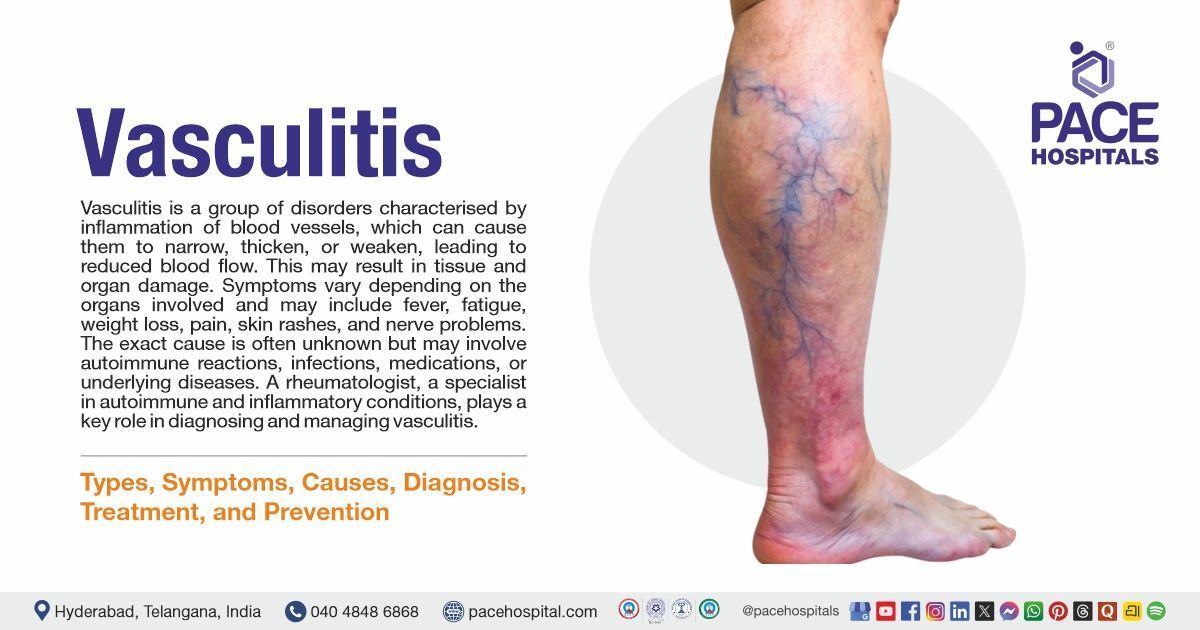Who Is an Endocrinologist? | Patient’s Guide With FAQs on Hormone Health
PACE Hospitals
Who is an endocrinologist doctor?
An endocrinologist is a medical doctor who specializes in diagnosing and treating disorders related to the endocrine system, which includes glands that produce hormones. These glands control vital functions such as metabolism, growth, and reproduction. Endocrinologists treat conditions involving the thyroid, pancreas, adrenal glands, pituitary gland, and reproductive organs, helping manage hormonal imbalances through clinical assessments, lab testing, and individualized treatment plans.
What kind of problems does an endocrinologist treat?
Endocrinologists treat a wide range of hormonal and glandular conditions. These include
diabetes, thyroid disorders, adrenal gland issues, pituitary dysfunction, hormonal infertility, metabolic disorders, and growth abnormalities. They monitor long-term hormonal balance and develop personalized treatment strategies to address specific imbalances, often requiring regular follow-ups to adjust therapies and ensure effective management of chronic or complex endocrine disorders.
Do endocrinologists offer specialized care for women’s hormonal health?
Yes, endocrinologists provide focused care for women’s hormonal health, addressing conditions like polycystic ovary syndrome (PCOS), thyroid issues, hormonal infertility, and menopause-related symptoms. They use diagnostic tests to identify hormone imbalances and create tailored treatment plans. These specialists help manage symptoms such as irregular periods, hair growth, mood swings, and weight changes associated with hormonal disruptions in women.
What is the role of an endocrinologist in managing thyroid conditions?
Endocrinologists manage various thyroid conditions such as hypothyroidism, hyperthyroidism, goiter, thyroid nodules, and thyroid cancer. They prescribe medications to regulate thyroid hormone levels, monitor ongoing lab results, and may recommend further testing or surgical consultation if necessary. Their goal is to maintain balanced thyroid function to support metabolism, energy levels, and overall health.
What tests are usually ordered by endocrinologist doctors?
Endocrinologists typically order tests like thyroid function panels, blood glucose levels, insulin resistance markers, reproductive hormone panels, cortisol and ACTH levels, calcium and vitamin D tests, and imaging such as
ultrasound or
MRI. These tests help assess the function of different endocrine glands, identify hormonal imbalances, and guide personalized treatment decisions.
How does an endocrinologist differ from a general physician?
While general physicians treat a wide variety of conditions, endocrinologists have specialized training in hormonal systems. They manage complex and chronic endocrine disorders such as diabetes, thyroid disease, and hormonal infertility. Their focus is on precise diagnosis, hormone testing, and long-term monitoring, often involving more detailed and targeted care than a general practitioner.
Can an endocrinologist help with long-term hormone disorders?
Yes, endocrinologists are essential in managing long-term hormone disorders such as diabetes, hypothyroidism, PCOS, and adrenal insufficiency. They provide ongoing monitoring, adjust medications as needed, and offer lifestyle advice to maintain hormonal stability. Their goal is to prevent complications and improve quality of life through consistent, specialized care over time.
Do endocrinologists manage hormone-related skin and hair conditions?
Yes, endocrinologists treat skin and hair issues caused by hormonal imbalances, including acne, hair loss, excess hair growth, and pigmentation changes. These symptoms may stem from conditions like PCOS, thyroid dysfunction, or adrenal disorders. Treatment involves correcting the underlying hormonal problem to improve dermatologic symptoms over time.
Do endocrinologists help manage endocrine issues related to menopause?
Endocrinologists help manage hormonal changes during menopause, including hot flashes, mood swings, sleep issues, and bone loss. They conduct hormonal evaluations and may recommend lifestyle changes, supplements, or hormone replacement therapy to reduce symptoms and support overall well-being during this transition phase in a woman's life.
What role does an endocrinologist play in diabetes care?
Endocrinologists play a key role in managing diabetes by assessing blood glucose levels, prescribing medications or insulin, and adjusting treatment plans based on patient response. They monitor for complications and provide guidance on diet, exercise, and long-term management to help prevent kidney, eye, nerve, and cardiovascular issues.
Do endocrinologists treat reproductive hormone conditions?
Yes, endocrinologists treat reproductive hormone conditions such as PCOS, infertility, hypogonadism, and premature ovarian failure. They perform hormone testing and create targeted treatment strategies that may involve hormone replacement, medication, or fertility support to address the underlying endocrine cause of reproductive issues.
How do endocrinologists diagnose hormone imbalances?
Endocrinologists use different diagnostic techniques to diagnose hormone imbalances. These include blood tests to measure hormone levels, imaging techniques like ultrasounds or MRIs, and specialised stimulation or suppression tests to assess gland function. By interpreting these results, they determine the presence of hormone-related conditions and develop appropriate treatment strategies to restore or manage hormonal balance.
Can endocrinologists help with hormonal causes of infertility?
Endocrinologists assess and treat infertility related to hormonal imbalances in both men and women. They evaluate reproductive hormone levels, thyroid function, and other endocrine factors that influence fertility. Treatment plans may include hormone therapy, lifestyle changes, or referrals for assisted reproductive techniques depending on the underlying hormonal issue.
What is the role of an endocrinologist in managing PCOD?
In managing PCOD, endocrinologists regulate hormonal imbalances, restore menstrual cycles, manage insulin resistance, and address symptoms like acne, excess hair, and weight gain. Treatment often includes medications, lifestyle changes, and monitoring to improve ovulatory function and reduce long-term risks like diabetes or infertility associated with PCOD.
Do endocrinologists manage adrenal gland disorders?
Yes, endocrinologists treat adrenal gland disorders like Addison’s disease, Cushing’s syndrome, and adrenal tumours. Diagnosis involves hormone testing and imaging, and treatment may include medication, hormone replacement, or surgery. These conditions can affect energy, blood pressure, and metabolism, requiring expert hormonal management and regular follow-up.
What to expect during a consultation with an endocrinologist?
During a consultation, the endocrinologist will review the medical history, perform a physical examination, and order lab tests to evaluate hormone levels. Based on the findings, they will provide a diagnosis and recommend a personalized treatment plan. Follow-up visits are usually scheduled to monitor progress and adjust therapy as needed.
Can endocrinologists assist with complex or rare hormonal conditions?
Yes, endocrinologists are trained to diagnose and manage rare hormonal disorders like Addison’s disease, Cushing’s syndrome, and parathyroid dysfunction. These conditions require precise testing, careful hormone replacement, and long-term monitoring. Endocrinologists coordinate with other specialists when needed to ensure effective treatment of these complex conditions.
How often should one follow up with an endocrinologist?
Follow-up frequency depends on the condition being treated. Stable cases like well-controlled hypothyroidism may need check-ups every 6 to 12 months, while complex or unstable conditions like diabetes or adrenal disorders may require monthly or quarterly visits. The endocrinologist will set the schedule based on treatment response and ongoing needs.
What is the role of an endocrinologist in managing pituitary gland disorders?
Endocrinologists manage pituitary disorders such as acromegaly, prolactinomas, and hypopituitarism using hormone testing, imaging, and tailored treatments. They may recommend medications, hormone replacement therapy, or surgery in collaboration with neurosurgeons. Regular monitoring is essential, as pituitary issues can impact multiple hormone systems in the body.
How do endocrinologists manage growth-related hormonal issues?
Endocrinologists manage growth-related issues by assessing growth hormone levels, tracking physical development, and using stimulation tests or imaging to diagnose deficiencies or excesses. Treatment may include hormone therapy or monitoring based on the underlying cause, particularly in children with growth delays or adults with abnormal growth patterns.
What is the role of an endocrinologist in managing calcium and bone metabolism disorders?
Endocrinologists treat calcium and bone disorders such as osteoporosis, hyperparathyroidism, and vitamin D deficiency. They use lab tests and bone density scans to diagnose issues and develop treatments including hormone therapy, supplements, or medications that strengthen bone health and regulate calcium levels in the body.
Do endocrinologists provide care for rare or complex endocrine disorders?
Yes, endocrinologists are equipped to diagnose and manage rare or complex endocrine disorders, including multiple endocrine neoplasia and hormone-secreting tumors. These conditions need specialized hormone testing, imaging, and sometimes genetic counseling. Treatment is individualized and may involve collaboration with other medical specialties for comprehensive care.
What is the role of an endocrinologist in managing endocrine tumors?
Endocrinologists manage endocrine tumors such as thyroid nodules, adrenal tumors, and pituitary adenomas by evaluating hormone levels, ordering imaging, and coordinating biopsies or surgeries when necessary. They help guide treatment decisions and monitor hormone production before and after tumor management to ensure balanced endocrine function.
How do endocrinologists contribute to managing endocrine complications in chronic diseases?
Endocrinologists help manage complications of chronic conditions like diabetes, osteoporosis, and thyroid eye disease by monitoring hormonal changes and adjusting treatments. They ensure hormonal balance despite long-term illness, minimize side effects, and prevent worsening of complications through ongoing care and coordination with other healthcare professionals.
Share on
Request an appointment
Fill in the appointment form or call us instantly to book a confirmed appointment with our super specialist at 04048486868











